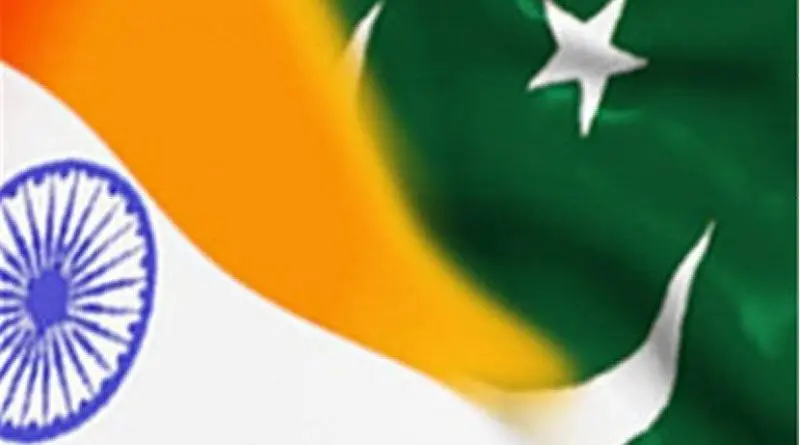Engaging The Pakistani Military: India’s Gains – Analysis
By Brig Arun Sahgal, PhD (Retd)
The London Times report on secret parleys between the Indian Prime Minister’s special non-official interlocutor and Gen. Pervez Kayani has created a buzz in New Delhi. It holds immense significance coming in the backdrop of the Prime Minister’s statement that if he manages to improve relations with Pakistan during his tenure he will consider his job done.
The report carries an innuendo that the process is being driven by the Americans, who are keen to see an improvement in Indo – Pak relations. Meanwhile, one can also witness a growing bonhomie in Indo – Pak relations. First, the initiation of the home secretary level dialogue in the wake of Pakistan’s willingness to bring the 26/11 culprits to justice is a positive step, where the only problem remaining is the capacity gap (which has so far precluded even the attackers of former President Musharraf being brought to book). Second, the reported sale of finished petroleum products to Pakistan during the forthcoming commerce secretaries’ talks also bodes well.
Thus seen from New Delhi’s perspective there has been a sea change for the better in Indo – Pakistan relations post the cricket diplomacy and the palpable upswing in the mood in New Delhi cannot be faulted. However, it is imperative to take cognizance of what exactly is happening in this part of the world and what is driving these initiatives at present.
The Americans are set to begin withdrawing their forces from Afghanistan starting July 2011. This will happen concurrently with the growing Taliban violence towards coalition forces, UN workers as well as soft targets like the civilians and Afghan security forces. From the US perspective, security situation is not at all comfortable and is in fact deteriorating. Second, with increased concerns over growing Taliban violence, the US has stepped up cross border strikes against Haqqani and other groups taking shelter in North Waziristan.
This has seriously alienated the Pakistani Army domestically which is seen as succumbing to the US pressure. The issue has been further deteriorated by the Davis incident that indicated CIA launching operations beyond the terms of mandated ground rules between the CIA and ISI. The ISI chiefs’ recent visit to Washington which was inexplicably cut short also demonstrates that things have not been fully resolved.
In addition, President Hamid Karzai has stepped up his reconciliation and reintegration efforts by opening up negotiations directly with Taliban and reportedly midwifed by Pakistan with tacit support of the beleaguered Americans. Even more interesting is the fact that President Karzai has opened substantive negotiations with Pakistani military leadership based on an assumption that taking Pakistan on board will be crucial for long term stability in the region.
The question then is what has all this to do with Kayani-India dialogue; the relevance lies in the significant American support. The US can provide a platform for meaningful dialogue to address Kayani’s India centric concerns through direct reassurances from the Indian interlocutors, which will indicate a genuine Indian desire to improve relations.
If the above scenario is realized it might create a win-win situation for Pakistan. On the one hand, it will get reassurances from the highest levels in India, which it can use to carry the dialogue process forward and even leverage to seek settlement of outstanding disputes on favourable terms. For instance, in the short term on Siachen and sir creek and in the long run on J&K.
Second, this will once again ensure emergence of Pakistan as the key factor in resolution of the Afghan imbroglio leaving India with little clout to shape political or security discourse in Afghanistan. It will also firmly bring the role and significance of Pakistani Military into political calculations of the Indo-Pak discourse.
From the Indian perspective, a dialogue with Kayani implies a direct interlocution with the centre of political and military power in Pakistan, and hence, if any conclusions or understanding is reached it will ensure a degree of regional stability. While no new ground appears to have been broken despite the momentum forward, the big issue for India is ‘peace at what cost.’ Allowing a Pakistani veto in Afghanistan will seriously compromise India’s strategic concerns. Second, a Pakistan-centric Afghanistan would impact India’s linkages with Central Asia, unless Pakistan can be convinced of greater economic benefits or it is bypassed by improving relations with Iran.
At present, economic bargaining with Pakistan appears difficult because of its close ties with China. Moreover, China’s growing strategic concerns both in Afghanistan and Pakistan will not allow any rapprochement between India and Pakistan at the cost of its own advantage.
In that case what are the tangible gains? The first and foremost gain from an improved dialogue will be perceptible in the summer of 2011 in J&K. If the cross border push to worsen the atmosphere is restrained then there might be some perceptible movement. Second, lowering of tensions will provide greater development focus and an opportunity to improve economic and political relations between the two countries. Third, even with regards to Afghanistan, India needs to push for improvement in relations by taking both Pakistan and Iran into confidence. In sum, a dialogue with the Pakistani military will facilitate building positive bilateral atmospherics.
Arun Sahgal
Consultant, IPCS
email: [email protected]

